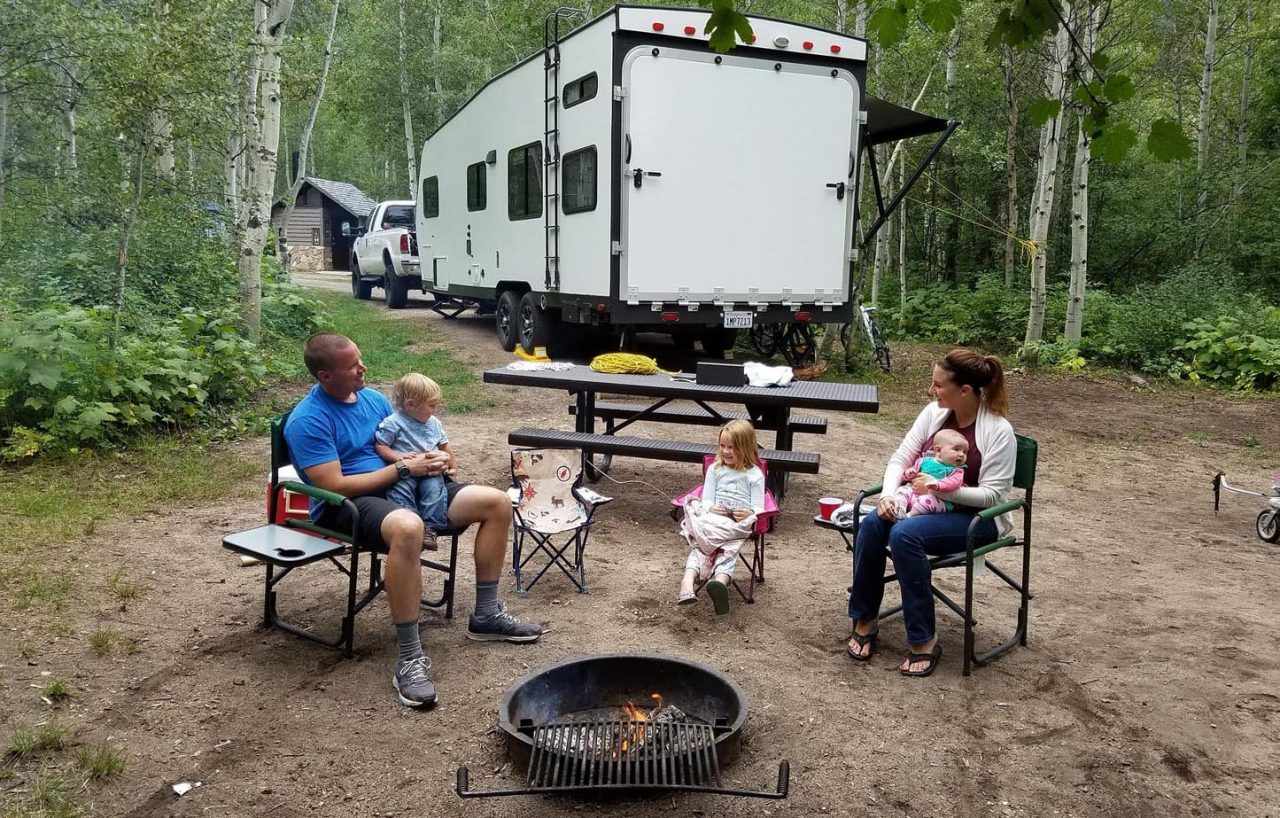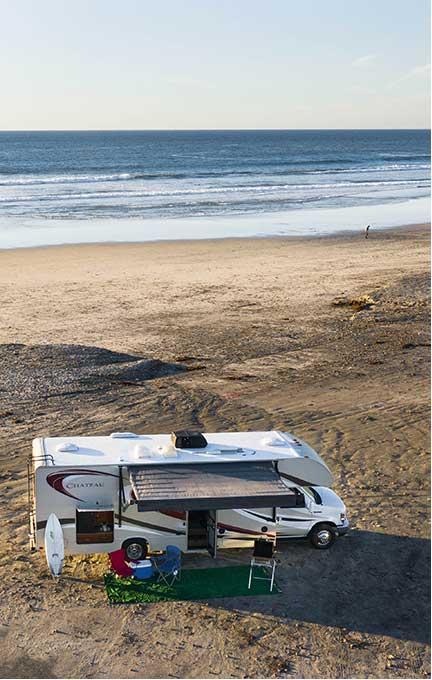The open road offers endless adventures, but maintaining a healthy diet while RVing can be challenging. How do you keep your meals nutritious and fresh when you’re miles away from your favorite grocery store? This guide is here to help you navigate the unique culinary aspects of RV living, ensuring that your journey is as healthy as it is memorable.
From smart food storage solutions to quick and healthy meal ideas, we’ll explore practical tips that make eating well on the road easy and enjoyable. Curious about how to balance fresh produce with long-lasting staples or manage moisture in your compact kitchen? We’ve got you covered. Join us as we uncover the secrets to healthy eating while embracing the RV lifestyle.
RVs For Rent Near You
1. Smart Food Storage Solutions
Utilizing Coolers for Extra Storage

Packing a cooler like this is an essential strategy for extending your food storage capacity while on the road. Coolers are particularly useful for storing less perishable vegetables and fruits, which can help maximize space and reduce spoilage. For instance, root vegetables like carrots and beets, as well as hardy fruits like apples and oranges, can be stored in a cooler without the risk of quick spoilage. This method frees up space in your RV fridge and ensures you have a steady supply of nutritious food.
Organizing your cooler by placing the most perishable items on top can make it easier to access them quickly, reducing the time the cooler is open and exposed to warmer air.
Efficient Use of RV Fridge and Pantry
Maximizing the space in your RV fridge and pantry is crucial for keeping food fresh and accessible. Given the limited space, organizing your storage areas thoughtfully is important. Start by categorizing your food items and storing similar items together. This makes it easier to find what you need and helps you keep track of your inventory, reducing the chances of food going bad.
Use stackable containers and bins to maximize vertical space in your fridge and pantry. Clear containers can be particularly useful as they allow you to see the contents at a glance. Additionally, labeling your containers can help you quickly identify items, especially when you’re in a hurry.
2. Navigating Fresh Food Availability
Sourcing Fresh Produce on the Road
Finding fresh produce while traveling can be a meaningful part of your RV adventure. Local farmers’ markets are excellent sources of fresh, seasonal produce, and they often offer unique regional specialties.
Grocery stores are another reliable option for sourcing fresh produce. Many grocery chains have locations nationwide, making it easy to find familiar stores during your travels. Additionally, some grocery stores offer online ordering and curbside pickup, which can often be an RVers best friend.
Balancing Fresh and Non-Perishable Foods
Maintaining a nutritious diet on the road involves balancing fresh produce with long-lasting staples. Non-perishable foods like quinoa, granola, and canned goods are excellent options for ensuring a steady supply of nutritious ingredients. These items can be stored easily and have a long shelf life, making them ideal for RV living.
Combining fresh produce with these staples can help you create balanced meals. For example, you can pair fresh vegetables with canned beans for a quick and nutritious salad, or add fresh fruit to granola for a wholesome breakfast. This approach allows you to enjoy the benefits of fresh produce while minimizing the risk of spoilage.
3. Cooking in an RV: Tips and Tricks

Managing Moisture and Ventilation
Cooking in an RV presents unique challenges, particularly when managing moisture and ventilation. The confined space of an RV can quickly fill with steam, leading to potential issues like mold and rust if not properly managed. To prevent these problems, ensuring adequate ventilation while cooking is important.
Exhaust fans and opening windows can help dissipate steam and reduce moisture buildup. Additionally, wiping down surfaces after cooking can help keep your RV dry and prevent mold growth. During winter, when ventilation might be more challenging, consider using a dehumidifier to maintain a dry environment.
Quick and Healthy Meal Ideas
Preparing quick and healthy meals is essential for maintaining a nutritious diet while on the road. Simple recipes that require minimal ingredients and cooking time are ideal for RV kitchens. Here are a few easy-to-make meal ideas:
- Hummus and Avocado Wraps: Spread hummus on a whole wheat tortilla, add sliced avocado, and top with fresh veggies like spinach, tomatoes, and cucumbers. Roll up and enjoy a nutritious, portable meal.
- Black Bean Soup: Combine canned black beans, diced tomatoes, and vegetable broth in a pot. Add spices like cumin and chili powder, and simmer until heated through. Serve with a dollop of Greek yogurt and a sprinkle of fresh cilantro.
- Yogurt Parfaits: Layer Greek yogurt with granola and fresh fruit for a quick, healthy breakfast or snack. For added probiotics, consider using kefir instead of yogurt.
4. Meal Prep and Planning
Portion Control and Meal Prep
Effective meal prep and portion control can make a significant difference in maintaining a healthy diet while RVing. Preparing small meals in advance and storing them in glass containers can save time and ensure you have nutritious options readily available. Glass containers are particularly useful as they are durable, reusable, and do not retain odors or stains.
Portioning out snacks like nuts and seeds in small baggies can also help with portion control and make it easy to grab a healthy snack on the go. Snacks to go are an especially great option for camping adventures.
Healthy Snack Ideas:
- Protein Bars: MacroBars, Lara Bars, and ProBars are great options.
- Fresh-Cut Veggies: Carrots, celery, and bell peppers are easy to prepare and store.
- Nuts and Seeds: Almonds, walnuts, and sunflower seeds are nutrient-dense and portable.
Healthy Snacks on the Go
Keeping a supply of healthy snacks is essential for maintaining energy levels during your travels. Protein bars, fresh-cut veggies, and fruits are excellent options for quick energy boosts. Look for protein bars that are low in sugar and high in protein and fiber to keep you satisfied between meals.

5. Maintaining a Balanced Diet
Incorporating Nutrient-Rich Foods
Incorporating nutrient-rich foods into your diet is crucial for maintaining health and energy levels while on the road. Whole foods like peanut butter, fruit preserves, and kefir offer a range of nutrients that can support your overall well-being. Peanut butter is a great source of protein and healthy fats, while fruit preserves provide natural sweetness and essential vitamins.
Kefir, a fermented dairy product, is an excellent source of probiotics, which can support digestive health. Including various nutrient-rich foods in your diet can help ensure you get the vitamins and minerals your body needs.
Staying Energized and Hydrated
Staying hydrated and maintaining energy levels are key to enjoying your RV adventures. Drinking plenty of water throughout the day is essential, especially if you’re spending time outdoors. Consider carrying a reusable water bottle to make it easy to stay hydrated.
In addition to drinking water, consuming foods with high water content, such as fruits and vegetables, can also help keep you hydrated. Watermelon, cucumbers, and oranges are excellent choices. Eating balanced meals that include a mix of protein, healthy fats, and carbohydrates can help sustain your energy levels throughout the day.

Wrapping Up: Embrace Healthy Eating on the Road
Navigating the culinary landscape of RV living doesn’t have to be daunting. You can maintain a nutritious diet even miles away from your favorite grocery store by employing smart food storage solutions, sourcing fresh produce on the go, and balancing it with non-perishable staples. Efficient use of your RV’s fridge and pantry, with thoughtful meal prep and portion control, ensures you have access to healthy meals and snacks throughout your journey.
Cooking in an RV comes with unique challenges, but with proper moisture management and quick, healthy meal ideas, you can create a delightful culinary experience. Remember, staying energized and hydrated is key to enjoying your adventures. As you embrace the RV lifestyle, let your culinary creativity flow and discover the joy of healthy eating on the open road. After all, the road to a memorable journey is paved with nutritious and delicious meals, ready to fuel your next great adventure.








